IT
GirlsGoIT – the first computing summer camp for girls to learn coding and programming in Moldova
36 girls from 15 territorial district in Moldova will participate in first 2-week long computing summer camp for girls between the ages of 16 and 20, to learn how to build web app development, as a result, build a web based project for their communities. The camp is due from 17th to 30th of August.
The 2-week long program has an agenda to teach girls 21st century programming languages such as Python and Flask, HTML + CSS and Bootstrap. As part of the process before girls arriving at the camp, each participants will prepare a project idea to develop while learning coding and programming. As a result, they will build a web application to promote their project in their community.
The organizers of this program think that “having a project based approach will foster critical thinking, coding and programming skills amongst girls rather than focusing purely on computer science. This approach will also stimulate their entrepreneurial skills, team building and communication skills”.
GirlsGoIT computing summer camp is implemented by Google for Education, one of the leading IT companies in Moldova, Endava is also playing a major role. Moldcell, Moldova’s mobile telecommunication is a proud partner, the Ministry of Education and the Ministry of Youth and Sport. Spark Lab is also an implementing partner, building the curriculum and agenda of the summer camp
After the summer camp, the next-step is to equip the 36 girls as ambassadors, with tools to setup GirlGoIT Local Chapters in their territories, engaging more girls from their communities into computing skills. In November 2015, there will be organised a 3 days’ workshop conference in design-thinking for the girls to plan 8 months activities for their local chapters, each chapters will be assigned with a coach with IT and entrepreneurial skills to guide support girls and the creation of local chapters for the duration of 8 months. In the long run, this local chapters will become centres for tech hub initiatives in rural communities and inspire upcoming talents for Moldova digital economy. The local chapter creation will be implemented through the financial support of the Department of State from the US Government and the German Embassy in Moldova.
The program is also involving parents, informatics teachers and librarians in the decision process of setting up the local chapters. On the 7th of August, 2015, Novateca will be hosting a focus group meeting for GirlsGoIT, inviting parents, librarians, informatics teachers, civil society organisations, IT companies and mobile telecommunication companies to discuss the opportunities and impact the creation of the local chapters will bring into communities.
GirlsGoIT is a 2 years framework jointly developed by UN Women, eGovernment Center, Novateca, ATIC and TEKEDU has already initiated the plan for 2016 computer science summer camp. The edition will have 2 tracks, Mobile App Development for Advance track and Web App Development for Basic track.
The advance track “Mobile App Development” will target existing programmers with basic skills to learn and enhance their knowledge on how to build mobile apps. While the basic track “Web App Development” will bring in 36 girls from new territorial districts with no previous experience in coding or programming to learn how to build web app and for their community.
IT
Moldova IGF: Finding a balance between sustainability and digital development together
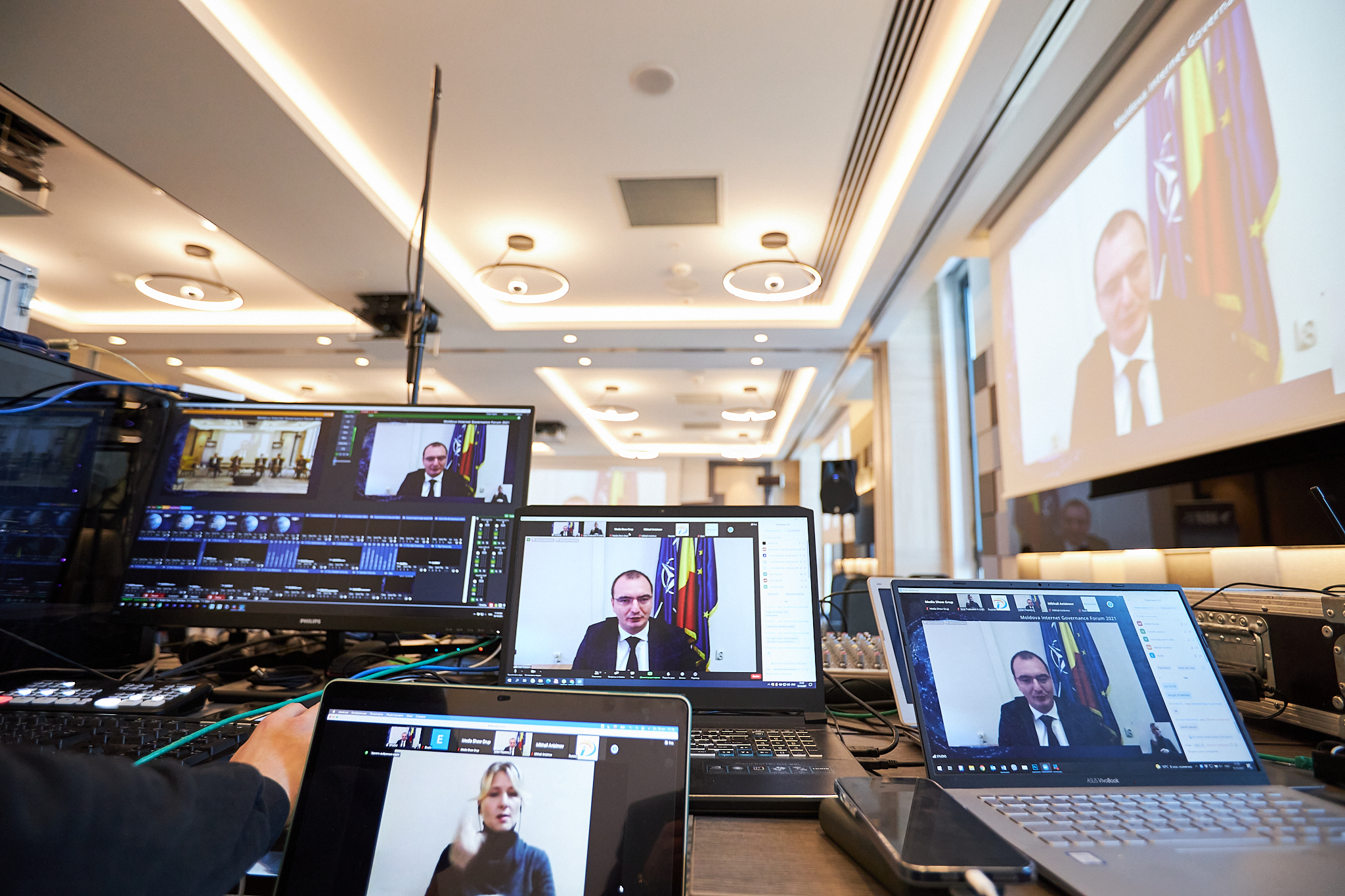
This week Moldova hosted the second Internet Governance Forum (MIGF 2021), which took place in a hybrid format on October 19-20. The Forum, organized by the Association “Comunitatea Internet”, became an international platform for an open dialogue between different stakeholder groups: civil society, technical and scientific community, private sector, government and public sector.
Parliamentarians, representatives of the government and key state institutions, international and non-governmental organizations, technology and consulting companies, experts in the field of digital business and digital development joined the discussions. More than 50 speakers and experts from Moldova, Romania, Ukraine, Russia, Georgia, Estonia, Serbia, Kyrgyzstan, Kazakhstan, Canada, USA and other countries participated in MIGF.
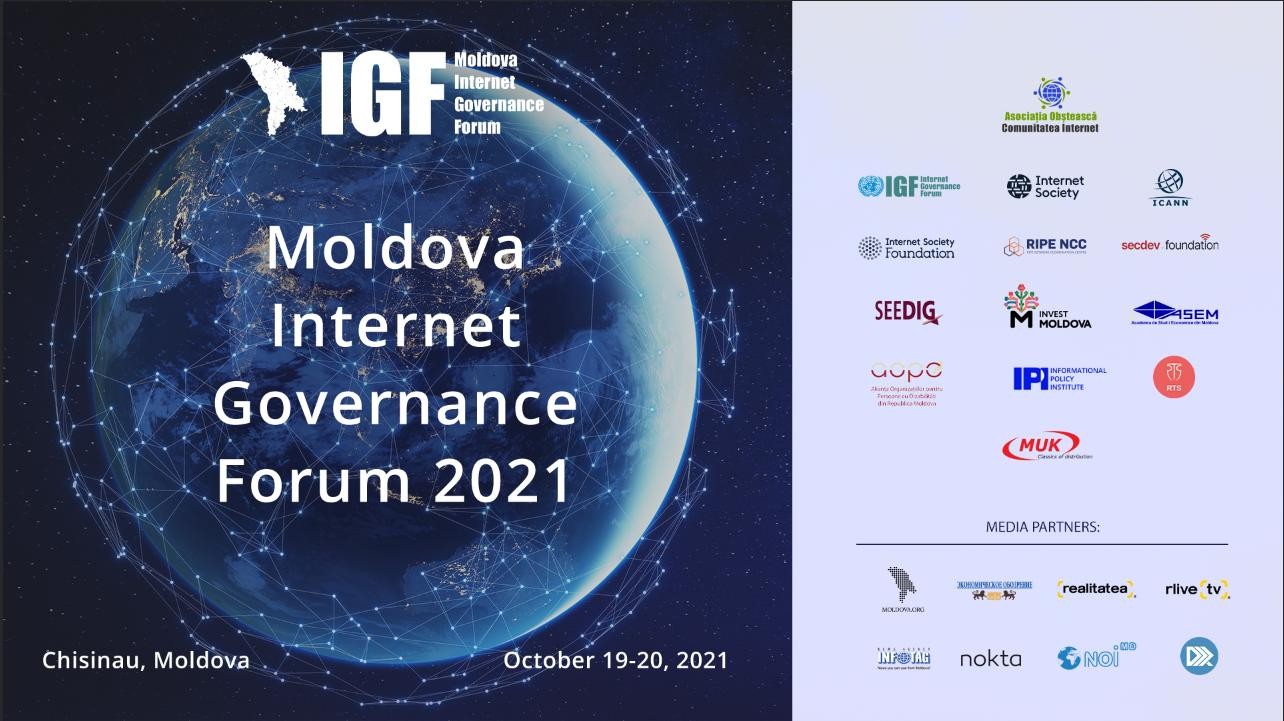
Iurie Țurcanu, Deputy Prime Minister for Digitalization, said at the Opening of the Forum that “we need a safe and secure Internet, we must make every effort to have a guaranteed and secure virtual space, where every user can use the Internet safely”. “MIGF is a good opportunity to discuss this topic of great importance, especially now, in the context of the global pandemic crisis. I would like to note the importance of meeting in this format and the need to strengthen the efforts of different categories of actors, such as the public sector, civil society, the technical community, academia, the private sector, international organizations, to discuss problems related to access to the Internet, as well as security in the virtual environment. I would like to thank the participants and organizers for having the courage to organize such an event in such difficult times”, the Deputy Prime Minister noted.
Iurie Țurcanu assured of the Moldovan Government’s openness for cooperation. “It is crucial for us to maintain this connection and, by combining efforts, perseverance and consistent investments, find a balance between sustainability and digital development. Leveraging the resources of multi-stakeholder partnerships can facilitate investments in digital infrastructure and build capacity for data privacy and security. These actions are essential for Moldova’s digital future,” concluded the Deputy Prime Minister.
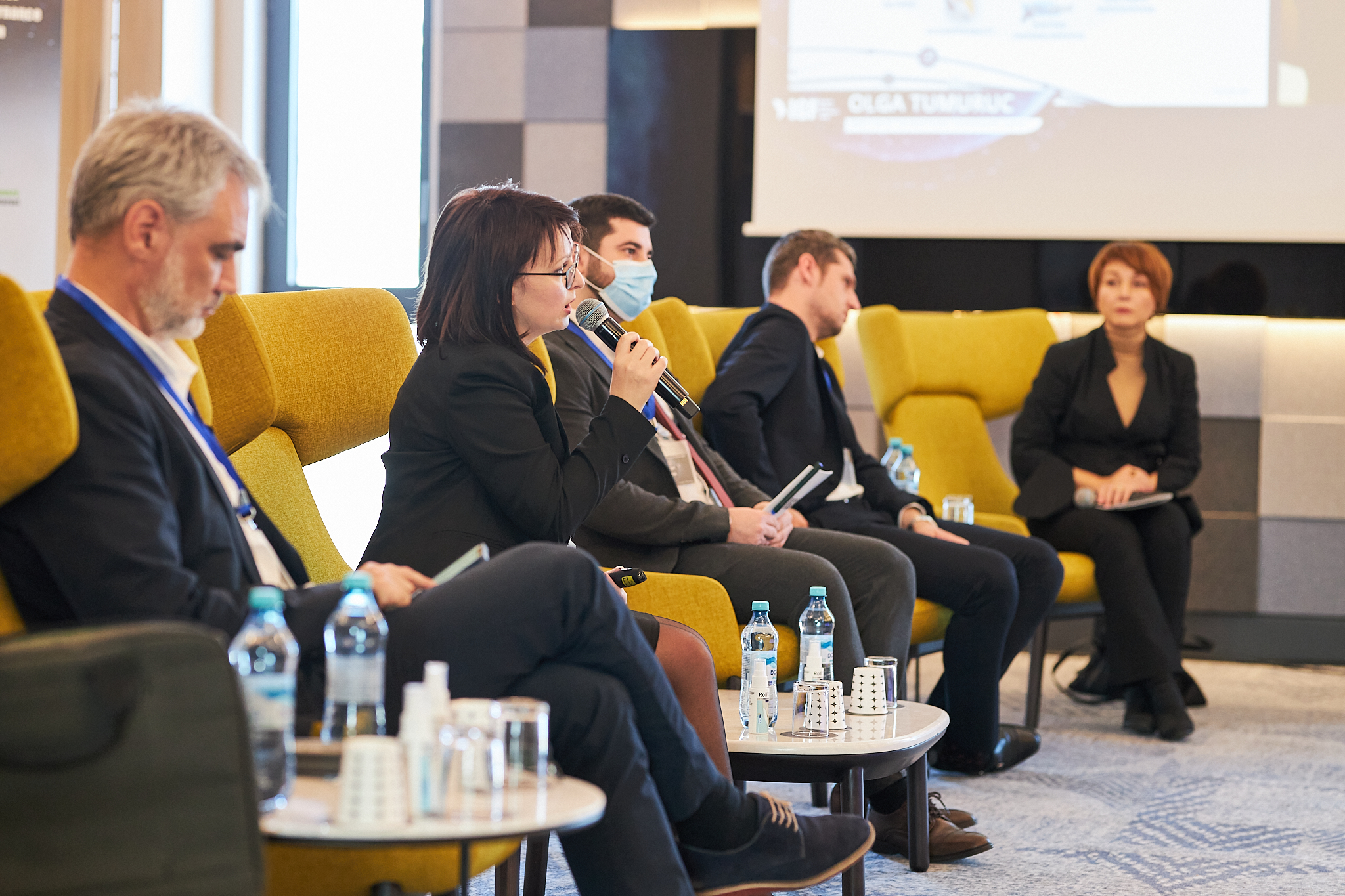
Stelian Manic, Director General of the Invest Moldova Agency, recalled the importance of efficient Internet governance in the modern society. He said the Internet governance ecosystem implies that each country must bring technological innovations to the government, redefining processes, streamlining public services and engaging them for the benefit of citizens. At the same time, he pointed out that Internet governance is not just about effective, efficient and responsive management based on smart investments in information technology. It must also be about security and reliability, sustainability and trust.
“Whether the Internet will be transparent, secure and accessible to all depends on our ability to work together and guide these technologies in ways that maximize benefits and minimize unintended consequences and risks. All we need to do now is create a safe space that promotes the empowerment of Internet users. A safe space for learning, work, play, discovery and growth”, stated the Head of Invest Moldova.
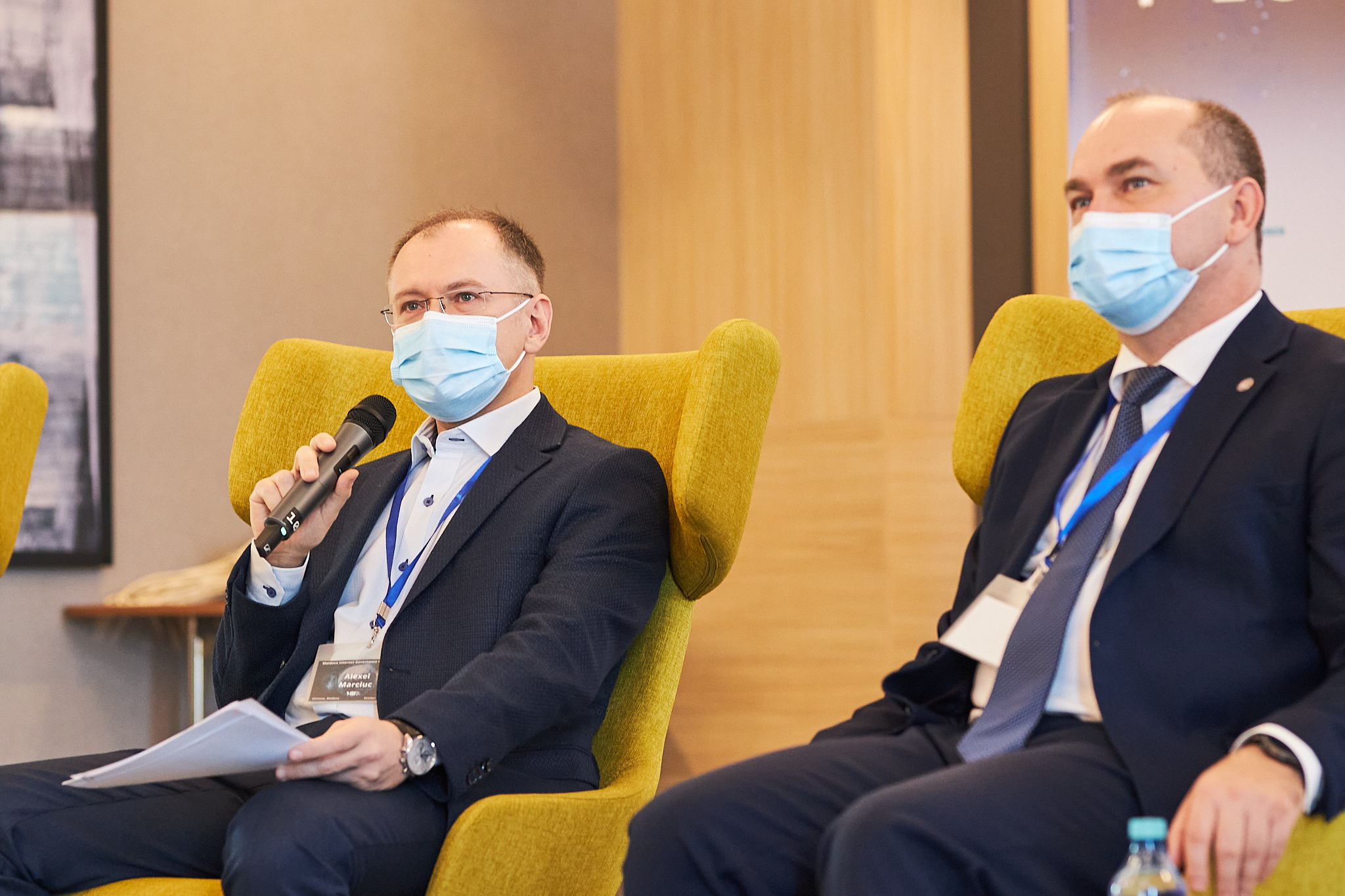
Representatives of international partner organizations addressed the Forum participants with welcoming remarks: Chengetai Masango, Head of the United Nations Secretariat for the Internet Governance Forum, David Frautschy Heredia, Director for European Government and Regulatory Affairs at Internet Society (ISOC), Mikhail Anisimov, Head of Global Stakeholder Engagement for Eastern Europe and Central Asia, Internet Corporation for Assigned Names and Numbers (ICANN), Chris Buckridge, Head of External Relations for the RIPE NCC, Regional Internet Registry for Europe, the Middle East and Central Asia, Olga Kyryliuk, Chair at South Eastern European Dialogue on Internet Governance (SEEDIG), Tattu Mambetalieva, Chair at Central Asian Internet Governance Forum (CAIGF).
Speakers welcomed multi-stakeholder discussions involving national and international stakeholders on how best to use digital data for the public good, how to shape and improve data governance mechanisms that recognize diversity, empower business and civil society, and contribute to the Sustainable Development Goals. These goals include bridging the digital divide, promoting digital inclusion, achieving universal connectivity, and protecting human rights on the Internet.

Alexei Marciuc, Chairman of the Association “Comunitatea Internet” and MIGF coordinator, reminded that the Internet Governance Forum is held in Moldova for the second year in the context of the COVID-19 pandemic, which highlighted the importance of digital technologies and the urgent need to enhance the role of IGF as a platform for dialogue, playing a unique role in the architecture of digital cooperation. He said the pandemic highlighted the needs of digital development and the need for digital empowerment.
“Two years into the COVID-19 pandemic confirmed that Internet access protects health care, jobs and, without exaggeration, lives. At the same time, the pandemic exacerbates inequalities of all kinds, including the digital divide. Those without access to digital technologies are deprived of the opportunity to learn, communicate, trade, shop, work and participate in many areas of modern life. On the other hand, connectivity has increased vulnerability to harm and abuse of all kinds. In particular, we have encountered an increase in such phenomena as disinformation, hate speech, and discrimination in the digital space,” said Alexei Marciuc.
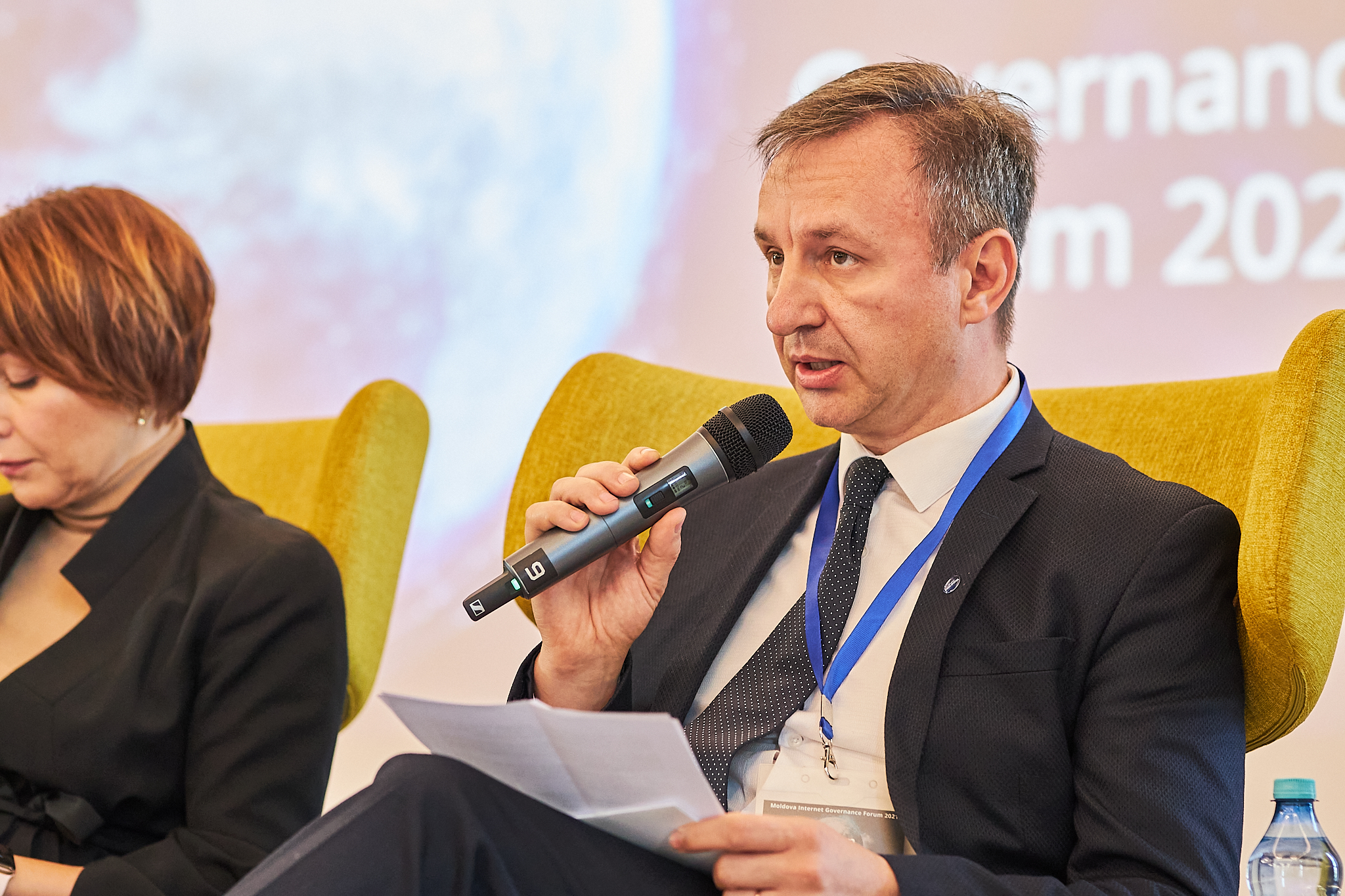
Olga Tumuruc, Director of the e-Government Agency, took part in the panel discussion “Digital Inclusion and Multilateral Cooperation in Managing the Digital Future,” she presented to the audience the work of the institution and its main tasks: modernization of public services, coordination of investments in information technologies, development and implementation of e-transformation solutions, creation of platforms and services to improve relations between the state, citizens and business. Olga Tumuruc also mentioned initiatives for digital inclusion of certain categories of population and ensuring access to public services for people with disabilities through innovative tools, applications and modern technologies.
The Internet Governance Forum in Moldova is held with the support of international partners, including the UN IGF Secretariat, ICANN, Internet Society, Ripe NCC, SecDev Foundation and national partners – Invest Moldova Agency, Academy of Economic Studies, IT consulting and security companies RTS and MUK, as well as a number of civil society organizations and state institutions.
At the core of this year’s MIGF agenda: digital inclusion, which is necessary for sustainable economic recovery, issues of trust, security and stability in the digital space, Internet freedom, e-learning, regulation of ICT sector in the period of digital transformation. A separate session addressed the issues of digital accessibility for people with disabilities and special needs. In addition, the Forum included special events organized jointly with Freedom House and The SecDev Foundation, Canada.
IT
MIGF 2021: Moldova’s Digital Future in the COVID-19 Era
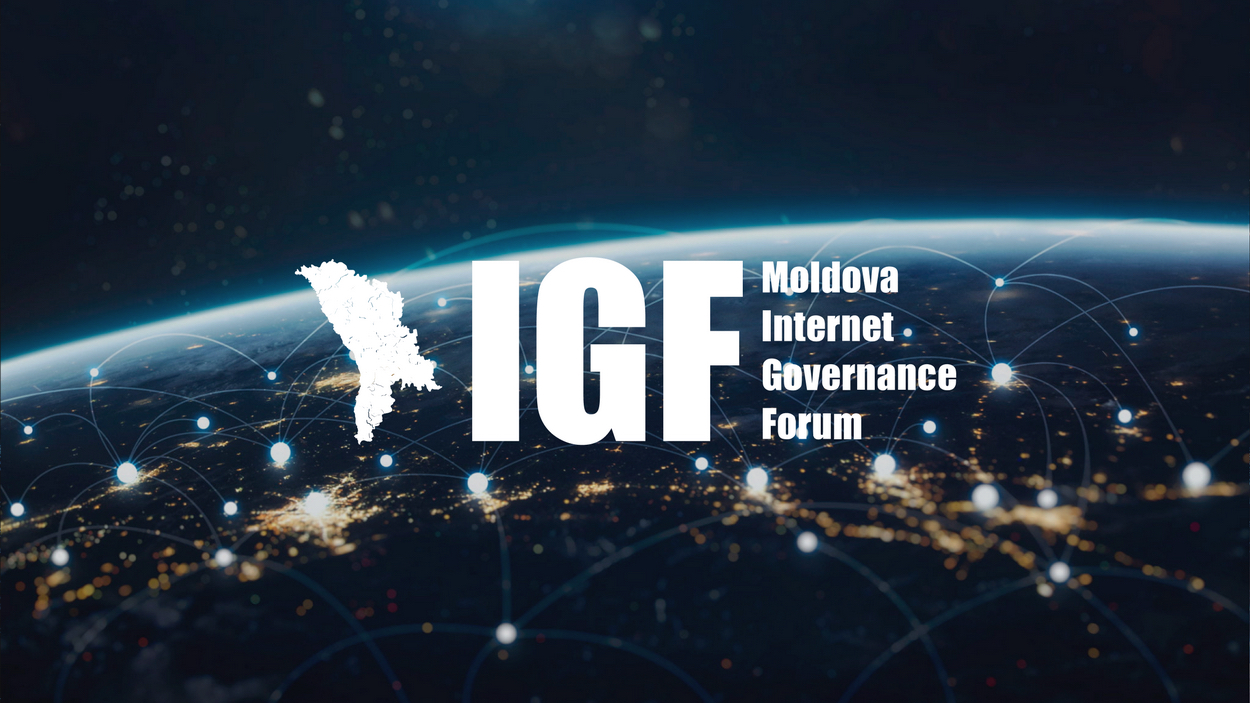
The Internet Governance Forum (MIGF) will be held in Chisinau on October 19-20. It will be attended by representatives of government agencies, international, non-governmental and expert organizations, digital business, technology companies, digital development experts from Moldova, Romania, Ukraine, Kyrgyzstan, Canada, the United States and a number of other countries.
The discussion of current problems of the digital agenda and the development of the Internet will be focused on 4 main tracks: trust and security, digital Inclusion and bridging the digital divide, digital rights and freedoms, digital data. Forum agenda consists of 8 plenary sessions and panel discussions, including special events, jointly organized with Freedom House and SecDev Foundation.
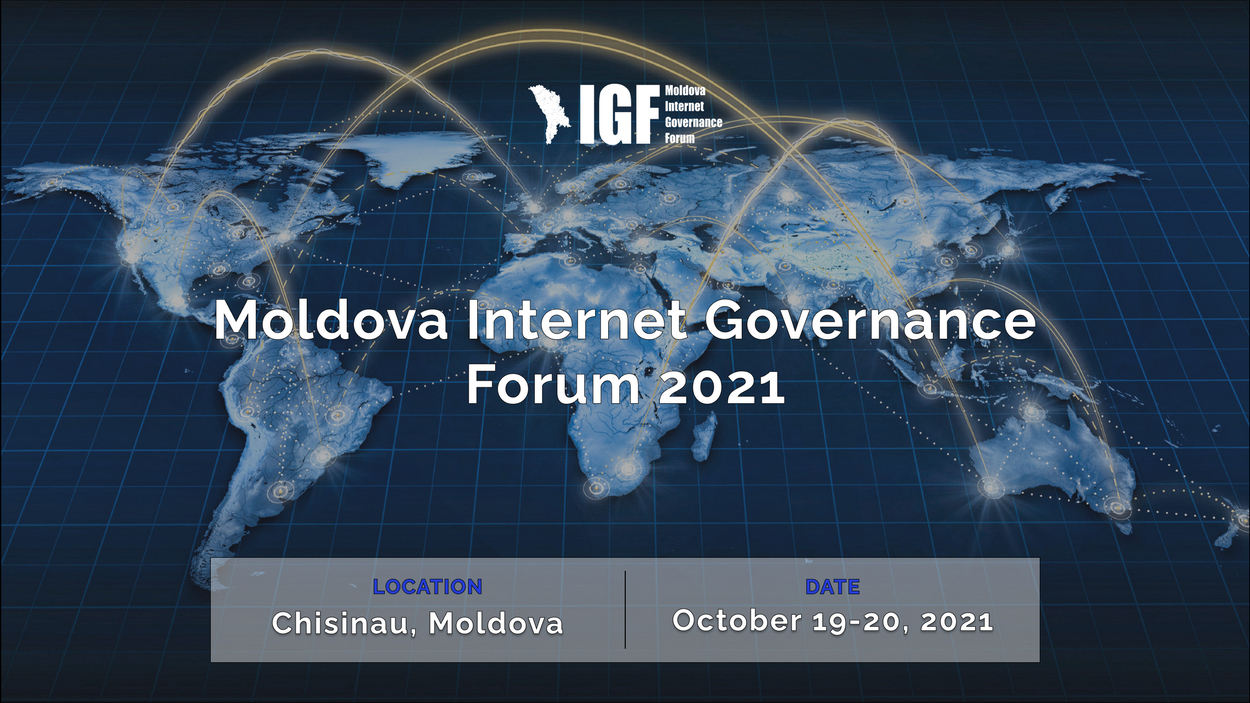
”In 2021, MIGF sets itself the task of strengthening open multilateral discussion of the development of the Internet in Moldova, the country’s participation in the formation of the global digital agenda, and a joint search for a balance between security and development. The COVID-19 pandemic has drawn special attention to the needs of digital development, the need to empower digital rights and opportunities against the backdrop of serious difficulties that society and the state face during this period”, said MIGF Coordinator Alexei Marciuc.
According to him, the holding of MIGF 2021 in Chisinau will serve to actualize the tasks of the digital agenda in the post-pandemic crisis, determine the prospects for multilateral dialogue on the sustainability of the global Internet and the priorities of a common digital future.
The forum will host expert discussions, speeches and presentations both online and offline. It is planed the participation of representatives of UN IGF, ICANN, RIPE NCC, Internet Society (ISOC), SecDev Foundation, Freedom House, Microsoft, SEEDIG, etc. Among the national partners of the forum are the Investment Agency “Invest Moldova”, the Academy of Economic Studies of Moldova, non-governmental organizations, companies RTS and MUK in the field of IT-consulting and security. Special guests of the event: Deputy Prime Minister for Digitalization Iurie Turcanu, members of Parliament, representatives of key government agencies, national and international organizations.
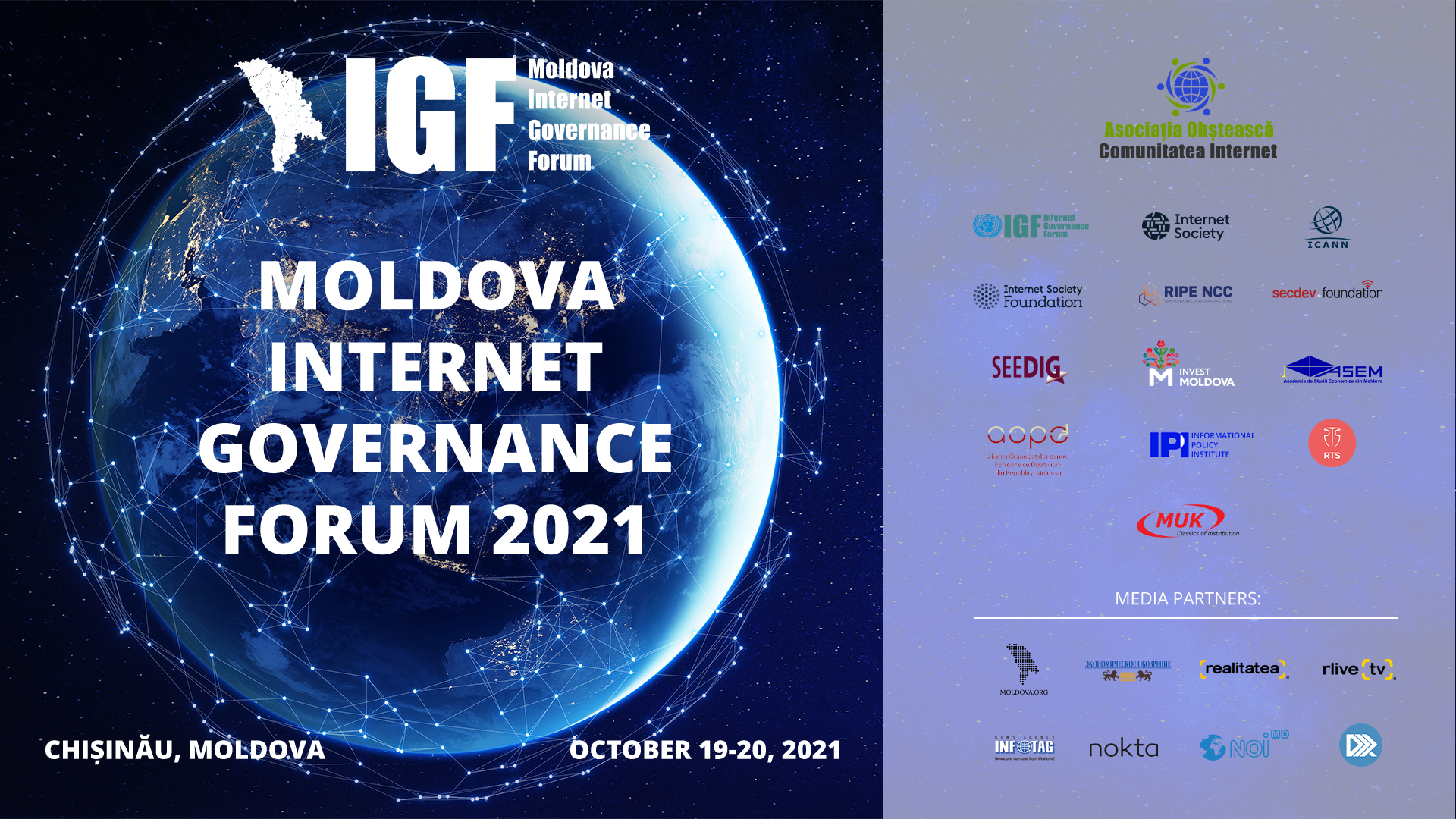
As part of the main tracks, expert discussions will be held on the topics:
- Digital inclusion and multistakeholder cooperation in managing the digital future
- Trust, security and stability in the digital space
- Digital accessibility for people with disabilities and special needs
- Internet freedom in Central and Eastern Europe. Trends and сhallenges, lessons for Moldova
- ICT regulatory in times of digital transformation
- Data sovereignty and trusted online identity
- E-learning as a road to online universities. National and regional experience
- The Rationale for a culture of digital safety in civil society organizations
The Moldova Internet Governance Forum is a national initiative of the global IGF of the United Nations, which in turn is convened by the UN Secretary General and is an international multi-stakeholder platform for dialogue on Internet governance issues.
Since 2020, MIGF has become an annual event where representatives of the expert community discuss global and national approaches to Internet governance, cybersecurity and digital resilience, regulation, expanding Internet access and bridging the digital divide, innovation and digital development strategies.
To register for participation in the MIGF, use the online form on the website www.igf.md. Registered attendees will receive an email connection information to participate in this event.
Miscellaneous
Economic expert: Moldova has too many bureaucrats, that incurring additional unnecessary costs

The number of government officials working at various control agencies has increased by 3.5 thousand people from 51.2 thousand in 2011 to 54.8 thousand today. That is while the country’s population has decreased by 343 thousand inhabitants, from 2.93 million in 2011 to 2.6 million in 2021, as being mentioned in an analysis published by the economic expert Veaceslav Ionita.
10 years ago, there was an average of 17.6 bureaucrats per one thousand inhabitants. This figure has increased by over 20%, meaning that today we already have 21.4 bureaucrats per one thousand inhabitants. According to the expert, the number of government bureaucrats in charge of public services is unbalanced when compared to the number of people who would request such public services. “If we keep the rate from 2011, then we would have to reduce the number of bureaucrats by 10 thousand people.”
Nowadays, the costs for a single employee of the bureaucratic system reach 200 thousand lei, including the payments related to salary, bonuses, social expenses, as well as office space and other labor costs. “The maintenance costs of this additional and unnecessary number of bureaucrats amount to at least 2 billion lei annually,” the expert claimed.
The number of government control agencies was reduced from 68 to 19, as being displayed on the official page of the national public services portal. “The number of control institutions were reduced, but not the number of bureaucrats in charge of controls. In the last 4 years alone, the number of permissive acts in Moldova has decreased 3 times. Thousands of people were dealing with unnecessary and harmful activity by offering permits for certain types of activity. Their activity proved to be useless and, consequently, was ended. But the bureaucrats stayed in offices, even though their previous positions were removed. Obviously, all the thousands of people, who have lost the right to control or allow something, started to look for new solutions to ‘milk’ the money from businesses.”
The expert says that the damage caused by the unnecessary activity of such officials amounts to tens of billions lei each year in the form of lack of investment in Moldova, people emigration, shutting down companies due to corruption, exaggerated prices due to monopolies protected by bureaucrats and other costs borne by the society.
It is still not clear why Moldova would need a National Agency for the Regulation of Nuclear and Radiological Activities, given that there are no nuclear power plants on the territory of the country and given that there is already a National Agency for Energy Regulation. Also, there are 3 agencies in charge of land recording and cadastral maps creation in the Republic of Moldova. The economic expert believes that some control agencies could be merged in a single market regulation agency and that would be a way to optimize public expenditures.
Photo: unknown





















